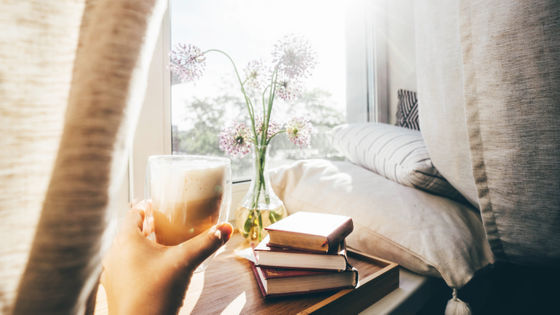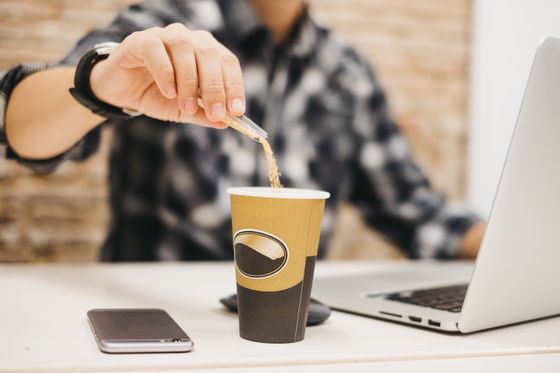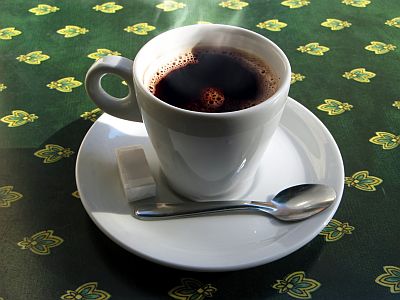``It's a lie that coffee gives you energy,'' says an expert, and what is the mechanism by which caffeine ``borrows'' vitality?

There should be a lot of people who say, 'I don't feel like the day has started unless I drink a cup of coffee when I wake up.' A nutrition expert explained the mechanism and pitfalls of feeling full of energy when ingesting coffee and the stimulating substance `` caffeine '' in energy drinks, which is the source of many people's activities.
Nope, coffee won't give you extra energy. It'll just borrow a bit that you'll pay for later
According to Emma Beckett, a professor of food science and nutrition at the University of Newcastle, Australia, the main function of caffeine in coffee is to change the interaction between a compound called adenosine and brain cells. It is said that there is.
When people consume energy in their daily lives, adenosine is released as a by-product in cells, increasing the concentration of adenosine in cells. When adenosine binds to receptors in cells, it slows down the function of the cells, which causes feelings of drowsiness and drowsiness. On the other hand, during sleep, energy consumption decreases and the concentration of adenosine also decreases, so if you get enough sleep, you can wake up refreshed the next morning.

If you don't get enough sleep, adenosine will remain, but if you drink coffee at this time, caffeine will bind to the receptor instead of adenosine. However, unlike adenosine, caffeine does not make cells feel sleepy when it binds to its receptors. The action of blocking this adenosine receptor is the identity of caffeine's drowsiness awakening effect.
There is a caveat to this mechanism. That is, blocking adenosine does not mean that adenosine is gone. Moreover, the caffeine will eventually be decomposed and disappear, but when that happens, the sleepiness that I had not felt thanks to the caffeine will return at once. The only way to fundamentally eliminate the drowsiness that has returned is to take sleep.
Regarding this mechanism, Mr. Beckett said, 'When you take caffeine, you feel energy, but this is not the energy that is being generated, it is just borrowing the sense of arousal.'
Additionally, those who drink a lot of sugar in their coffee will experience more backlash. This is because sugar is a source of energy in the body, but after a blood sugar spike, blood sugar levels can plummet, making you feel even more tired.

The effects of caffeine also depend on when you consume it. As mentioned above, caffeine exerts a wake-up effect by blocking adenosine, so it is easier to feel the effect in the second half of the day when adenosine is accumulated than in the morning. However, if you drink coffee too late, you may not be able to fall asleep even if you get into the futon at night.
According to Beckett, the half-life of caffeine, that is, the time required for half of the caffeine in the body to be broken down, is around 5 hours. However, the metabolism of caffeine varies depending on the constitution and lifestyle, and people who drink coffee often develop tolerance to caffeine and may not feel much effect.
Caffeine also increases alertness by increasing cortisol , sometimes called the stress hormone. However, cortisol is already naturally elevated when you wake up, so if you feel that drinking coffee after waking up is more effective than drinking coffee right after waking up, this may be the reason.
Some people are busy in the morning and can get by with just a cup of coffee. Some people say it's not good to drink coffee when there's nothing in your stomach, but Beckett says the adverse effects of drinking coffee on an empty stomach have not been proven. Drinking coffee with or after a meal may have a milder effect than fasting, because food slows the absorption of caffeine.
As a caveat to relying on caffeine, Beckett said, ``Caffeine is certainly useful, but it's not magic. Adequate food, water, and sleep are essential to producing energy and revitalizing the body. It is.'
Related Posts:







